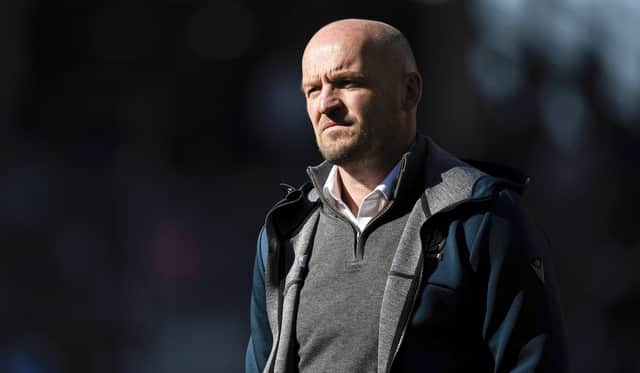Time has come for Gregor Townsend to stop experimenting - Scotland need to keep it settled


Some already suggest that this next 14 months offer the last chance for a number of very talented players to achieve something more than the occasional splendid triumph. This may not be true. Players such as Stuart Hogg, Finn Russell and Hamish Watson will not be much on the wrong side of 30 a year from now and that isn’t exactly old age in the professional era, even if they may not go on as long as Jonny Sexton has for Ireland and Alun Wyn Jones for Wales.
Over the last two years, Scotland head coach Gregor Townsend has fielded a number of XVs which may reasonably have been described as experimental, most recently in this summer’s series in Argentina. I would think that the time for experiments is over; it should take only a remarkable surge from an uncapped player to force his way into this season’s Six Nations, let along the World Cup.
Advertisement
Hide AdAdvertisement
Hide AdIn his many revised editions of his textbook Total Rugby, Jim Greenwood insisted that selection was the most important part of a coach’s job. It is, after all, the area of the game where he has the most immediate influence. Get selection right and you improve your chance of winning; get it wrong and you are preparing the team to lose.
In general a coach wants, or should want, a settled team, settled but not complacent. It’s a difficult balance to strike, and, of course, you are more likely to have a settled team throughout a tournament if you have got it right first time and are winning matches.
The immediate question is whether Stuart Hogg will retain the captaincy. Gregor Townsend and he may not always have seen eye-to-eye, but this is natural, indeed inevitable, when two strong-minded men are joined in the coach-captain relationship. And of course relationships may fracture over time. Nevertheless, a coach is usually better off with a strong captain who sometimes challenges him rather than with one whom he dominates. England’s comparative failure since the last World Cup is attributed by some well-informed rugby writers to their coach’s apparent unwillingness to share authority, his reluctance to cede decision-making to the man on the field.
Hogg is an inspirational player, one whose genius sometimes flickers, sometimes lights up a match. He often goes beyond what seems possible. Of the half-dozen outstanding Scottish full-backs I have watched, he most resembles Andy Irvine. I think that he may have reached a point in his international career, now more than ten years old, when he may need the responsibility of leadership.
There is another point in his favour. This Scotland team may be able to grind out the occasional victory, as for example, against England back in February, but it is at its best when it plays a fast and adventurous game – that is to say, the sort of game which comes most naturally to Hogg.
Everyone recognizes that the daft decision to name the RWC pools based on rankings three years ago has done no favours to Scotland. To reach the knock-out stage of the tournament, we are almost certainly going to have to beat ether Ireland or South Africa. I doubt if we can beat either playing a limited, safety-first, make-no-mistakes game. Certainly we can’t look to win an 80-minute arm-wrestle against the Springboks. We have to play the sort of fast imaginative game which comes naturally to Hogg and Russell. To play in that style isn’t to risk defeat, if only because playing in another way already makes defeat likely; but it is our best chance of defeating either.
Next Spring is at least as important as Autumn 2023. Honesty compels one to admit that Scotland is about as likely to win the World Cup as a 66-1 colt which has never won a race has of being the Derby winner; perhaps less, equine form being fluctuating. But we always have a chance of winning the Six Nations, even though our record since we lifted the last Five Nations title in 1999 suggests otherwise. That said, our best chance of doing so will come if Gregor Townsend marks this autumn as “end of experiment” before the RWC a year from now.